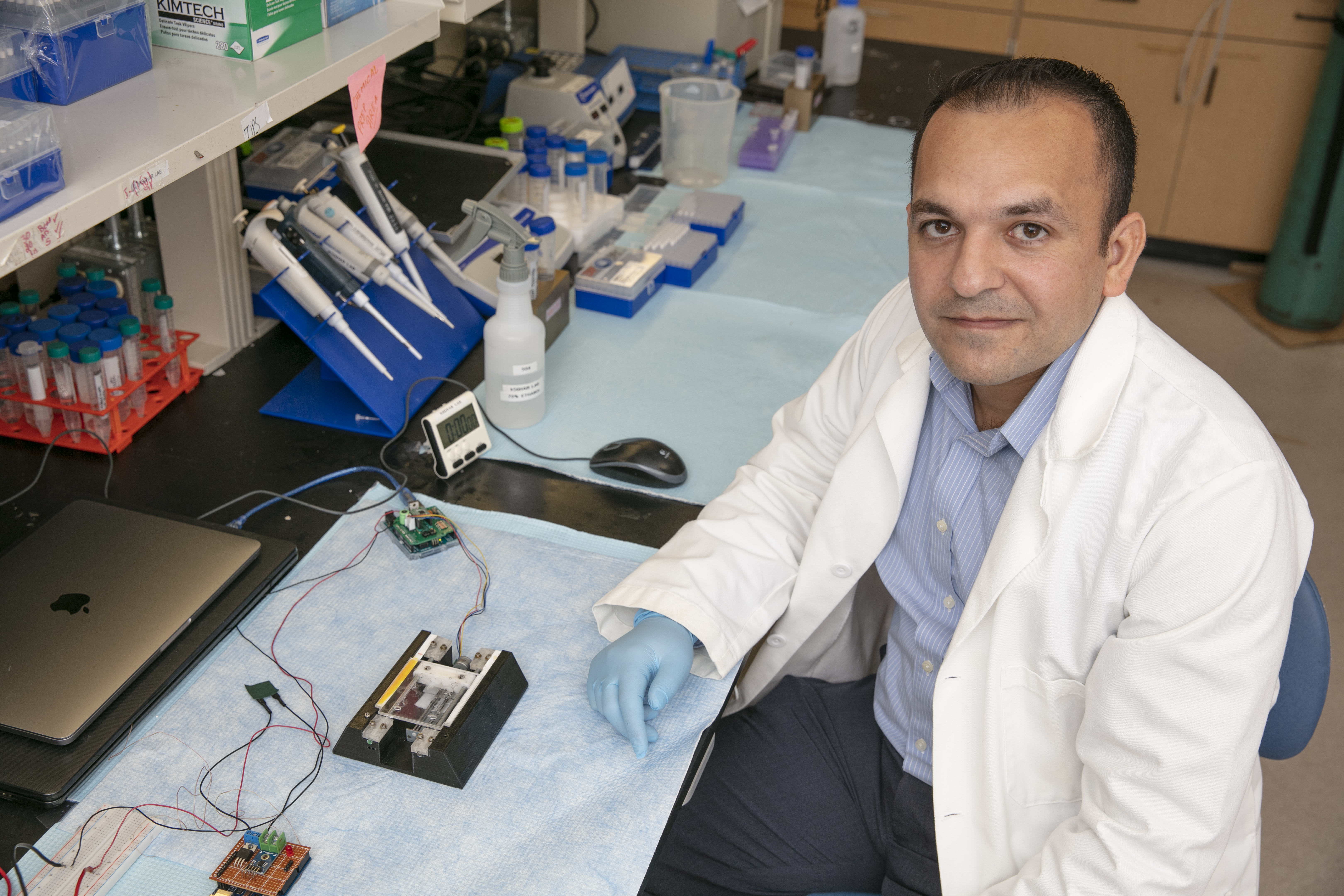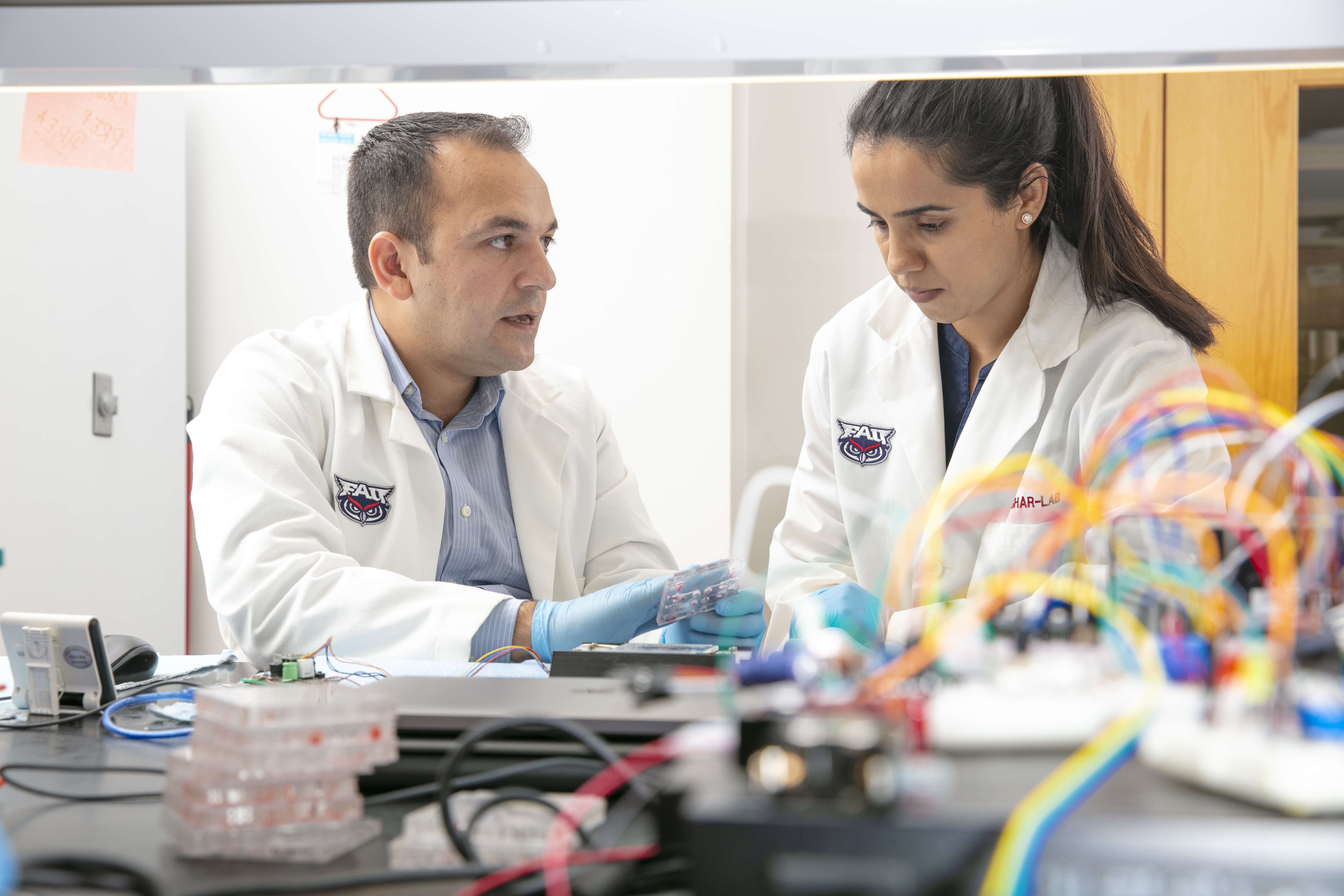Meet Dr. Waseem Asghar

“Nano-biotechnology was of great interest to me because of the number of ways that a career in the industry can directly impact human health,” said Dr. Asghar.”
Dr. Waseem Asghar turned his lifelong passion for learning and making an impact on society into a fulfilling career as an associate professor of electrical engineering and computer science at Florida Atlantic University. He also serves as the laboratory director for micro and nano-biotechnology in medicine at the university.
Dr. Asghar was drawn to his industry after taking an exciting nano-biotechnology course while earning his PhD degree. After exploring nano-biotechnology further, Dr. Asghar felt inspired to pursue Ph.D. research in the field.
In his current role, Dr. Asghar focuses specifically on biosensors and microfluidic technologies. From infectious disease diagnostics to human sperm sorting, these technologies have various applications in the human health field. One of the commercialized products he and his team developed is a microfluidic device used to sort and select the best quality sperm cells in order to support in vitro fertilization (IVF) procedures for couples facing fertility challenges. “So far, more than 30,000 babies have been born due to this technology,” said Dr. Asghar. “It is incredibly fulfilling to know that I played a role in improving human health and that our device helped numerous families.” “Witnessing my work make a true difference in the lives of others provides me with a great deal of enthusiasm for my job.
Another notable technology that Dr. Asghar developed alongside his collaborators is a biosensing platform designed to diagnose and monitor the treatment of pathogens including HIV, Zika virus, Corona virus, E. coli, Staphylococcus aureus, and more. For his work developing this cost-effective platform, Dr. Asghar was awarded the Humanity in Science Award by Phenomenex and the Analytical Scientist. “It was an honor to receive this award,” said Dr. Asghar. “It gave me renewed energy and confidence in my career. Improving humanity plays a significant role in my research, and it was meaningful to be recognized for that.”
As someone who values learning as much as Dr. Asghar, a career in academia is the perfect fit. “A career in this industry means being available to work around the clock, but you still have flexibility throughout your day,” said Dr. Asghar. “I enjoy the research component of my role and my job sometimes feels like a hobby when I am able to read, learn new things, and expand my skill set.”
While building a career in biomedical engineering does not promise the sizable salary that, say, becoming a doctor does, Dr. Asghar encourages the next generation of students to consider exploring it as an option if innovation and entrepreneurship are high on their list of priorities.

“A career in biomedical engineering can create many opportunities to start businesses because of how closely you work with commercialization,” Dr. Asghar explained. “If someone really has an interest in scientific discovery and starting a business, this is an area where they can tap into both.””
As the biomedical engineering industry evolves, Dr. Asghar foresees technology playing a major role in overcoming challenges posed by human diseases such as early detection, self-testing, and monitoring. “There are certainly obstacles,” Dr. Asghar acknowledged. “But with the help of new technologies that are currently being developed, you can sequence the whole genome.”



